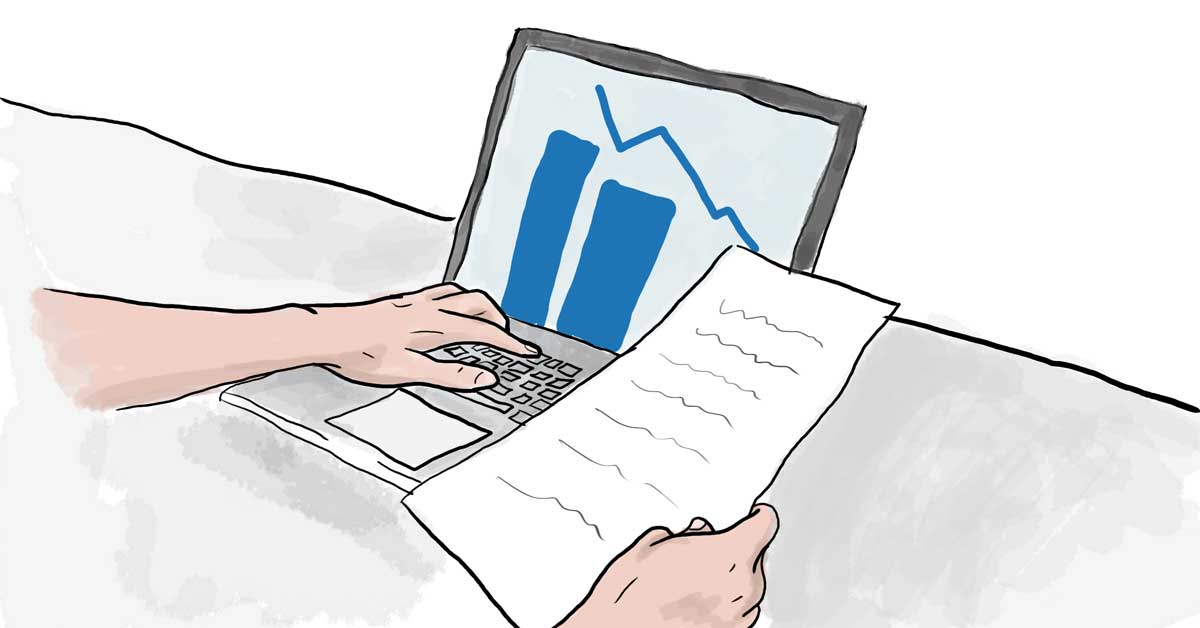Law firms that implement data analytics can develop more targeted and in-depth strategies that encourage the growth and success of the practice. According to a 2020 survey, 81% of firms that use legal analytics say clients look upon a practice favorably. Amongst lawyers, 90% say legal analytics makes them better lawyers.
Personal Injury Practice is a challenging job with many different elements to grasp at once. In one day, you could be juggling everything from managing team activities to conducting client meetings to meeting critical deadlines. It’s a demanding sector, and doing it old school isn’t good enough in the current market. You have to meet competition head-on and attract clients with the way your firm is managed. Are you ready to transform how you manage your day-to-day activity? A law firm dashboard and legal analytics can make your work easier, more productive, and more profitable.
Read on to see where CloudLex’s legal data analytics can help you be more up-to-date and efficient without having to juggle all the time.
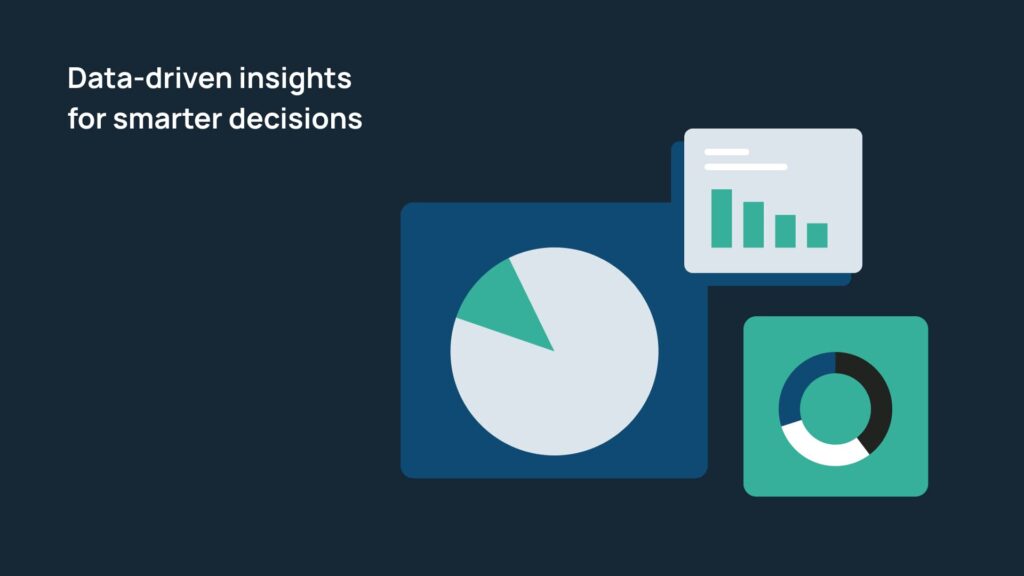
1. Analyze your needs using a Law Firm KPI dashboard
A KPI dashboard is a tool that imports data sources to provide you with visual feedback to reveal how your business is performing against key performance indicators (KPIs). These law firm data dashboards provide perspective into the overall functionality of the firm.
What do you need to know about your law firm to become more effective? Ask the following questions:
- How many cases were opened last month?
- How many cases were closed this year compared to the same time last year?
- How many cases have been referred out this year?
- How long have cases been in a particular status?
Having a KPI analyze this legal data helps appropriately allocate resources and support for your personal injury law firm’s requirements. It provides the strategic insight you need to be in control of your business.
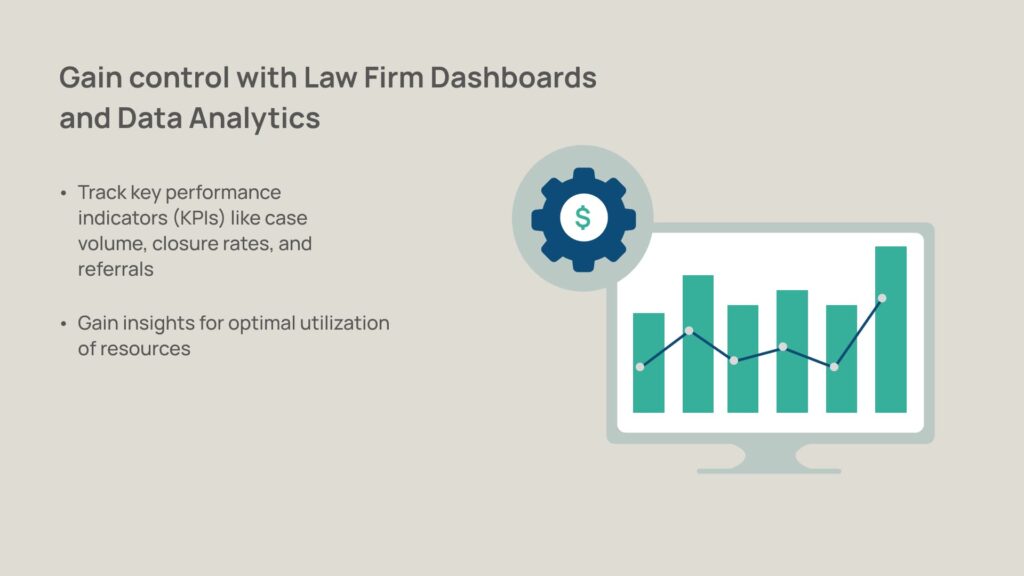
2. Law Firm Data Analytics to Coordinate Projects
Keeping track of your daily tasks, meetings, and activities is tricky, especially if this information is shared across various apps. Although there’s an app for everything, it can get overwhelming. Tasks that are missed or not properly managed lead to forgotten deadlines and angry clients. Using one really effective and functional app for coordinating your projects is so much more efficient and will save you from a tremendous amount of stress.
Matter management software solves these issues by consolidating your daily appointments, to-do lists, and tasks so you can see the breakdown of your whole day in one place. The app manages various types of documents and images and streams media files directly in your browser. It allows you to categorize and tag your files for the ability to search efficiently. You can also collaborate on documents alongside your colleagues and staff. It integrates seamlessly with Dropbox, Google Drive, OneDrive for Lawyers, and Electronic Signature Solutions.
3. Monitor progress by overviewing law firm analytics and staying focused.
CloudLex tracks how long you and your team dedicate to daily tasks, showing how your time is allocated across the firm. Analytical tools allow you to work smarter, not harder.
As a lawyer, you likely already collect the data about your clients, employees, internal business practices, etc. The data is valuable, but without legal analytics tools, it’s just overwhelming and confusing. Legal analytics software can reveal which lawyers or associates at the firm are the most productive, efficient, and cost-effective and which need to improve. This data is critical for making decisions about assignments and promotions and having lawyers manage their workload.
Not only do you get unparalleled access to data, but law firm analytics can also provide tools and resources to help those underperforming lawyers get back on track. Document management software and client collaboration tools can help boost productivity.
Stay up-to-date with your team’s activities. Help team members stay focused on assigned tasks and key performance and spot any overdue tasks for immediate attention just by clicking a button on your law firm data dashboard.
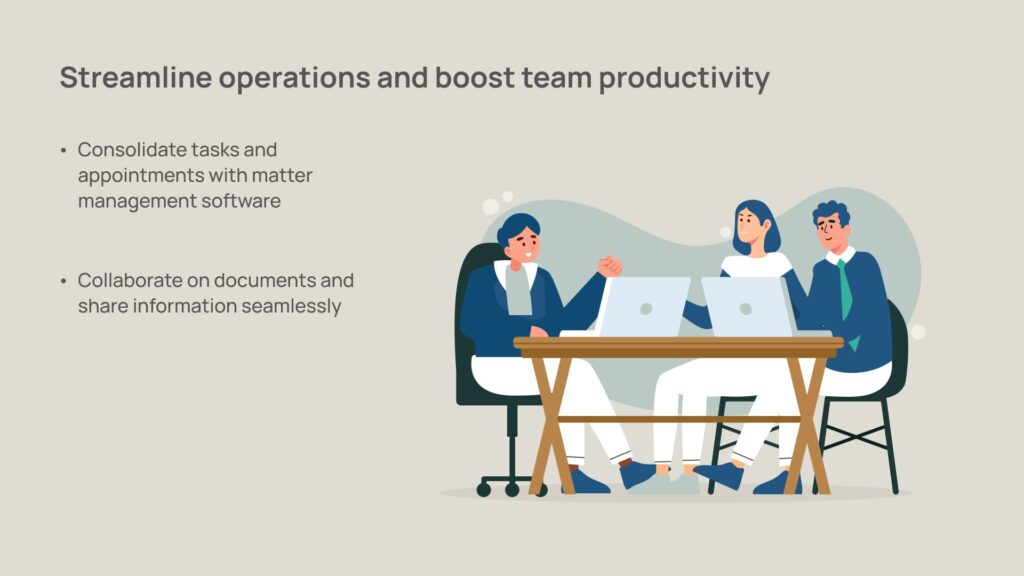
4. Never miss a deadline – always keep an eye on your law firm’s analytics.
The consequences for missing deadlines and court dates are strict and severe. Many lawyers use multiple calendars just as a preventive measure to avoid missing anything. However, more isn’t always better. The legal analytics dashboard incorporates your daily schedule and calendar and highlights significant dates, so deadlines are clear to work toward.
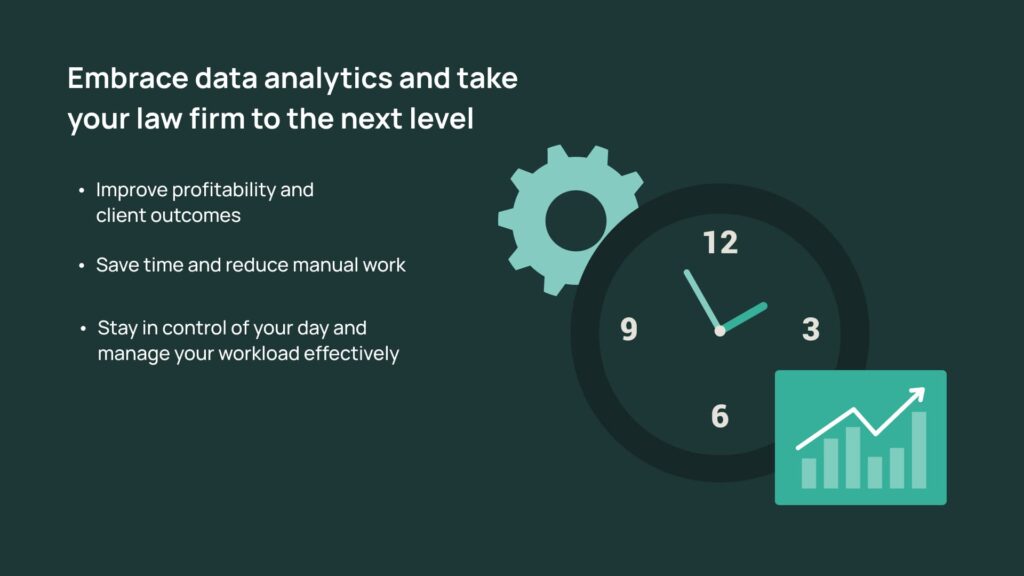
You can create or modify events in CloudLex or in the iOS app that will show up in your integrated calendars (Google Calendar, Outlook Calendar). Any changes made to the events in CloudLex will show up in both places.
On the automated task and event calendar, it can also generate reminders for individual users on a daily basis. There should preferably be at least three reminders for any designated deadline leading up to it beforehand.
Considering how legal analytics tools can benefit legal professionals, it’s no surprise that 70% of firms already use them. By leveraging legal analytics tools, you can increase your profitability and improve client outcomes, all while remaining in control of your day by saving time and reducing manual work.
Disclaimer: All product names, logos, and brands are the property of their respective owners. All company, product, and service names used in this document are for identification purposes only. The use of these names, logos, and brands does not imply endorsement. We disclaim proprietary interest in the marks and names of others. Any views expressed in this document represent the beliefs and opinions of CloudLex, whose analysis is based solely on publicly available information. No representation or warranty, express or implied, is made as to the accuracy or completeness of any information contained herein. CloudLex expressly disclaims any and all liability based, in whole or in part, on such information, any errors therein or omissions therefrom. CloudLex also reserves the right to modify or change its views or conclusions at any time in the future without notice.
